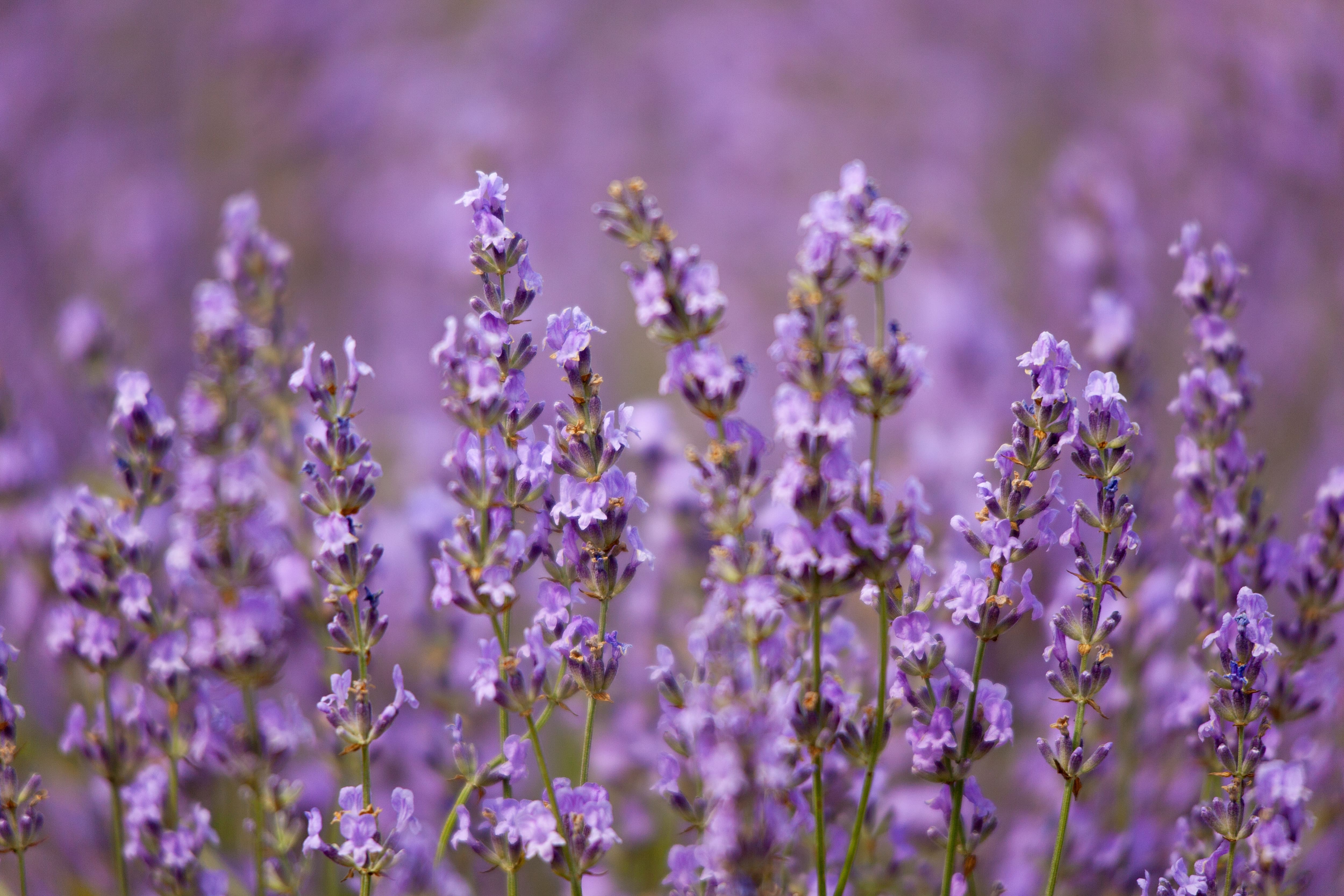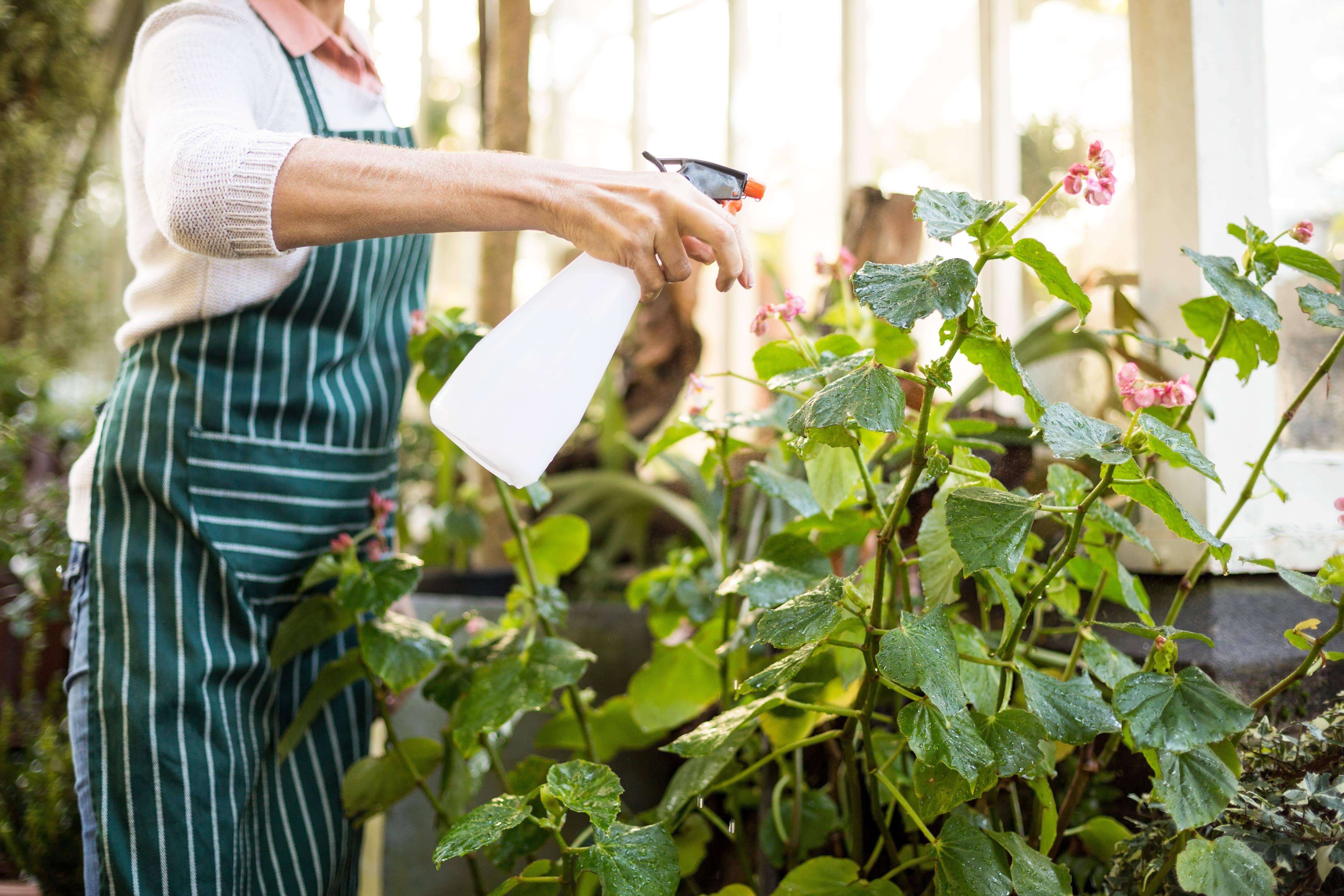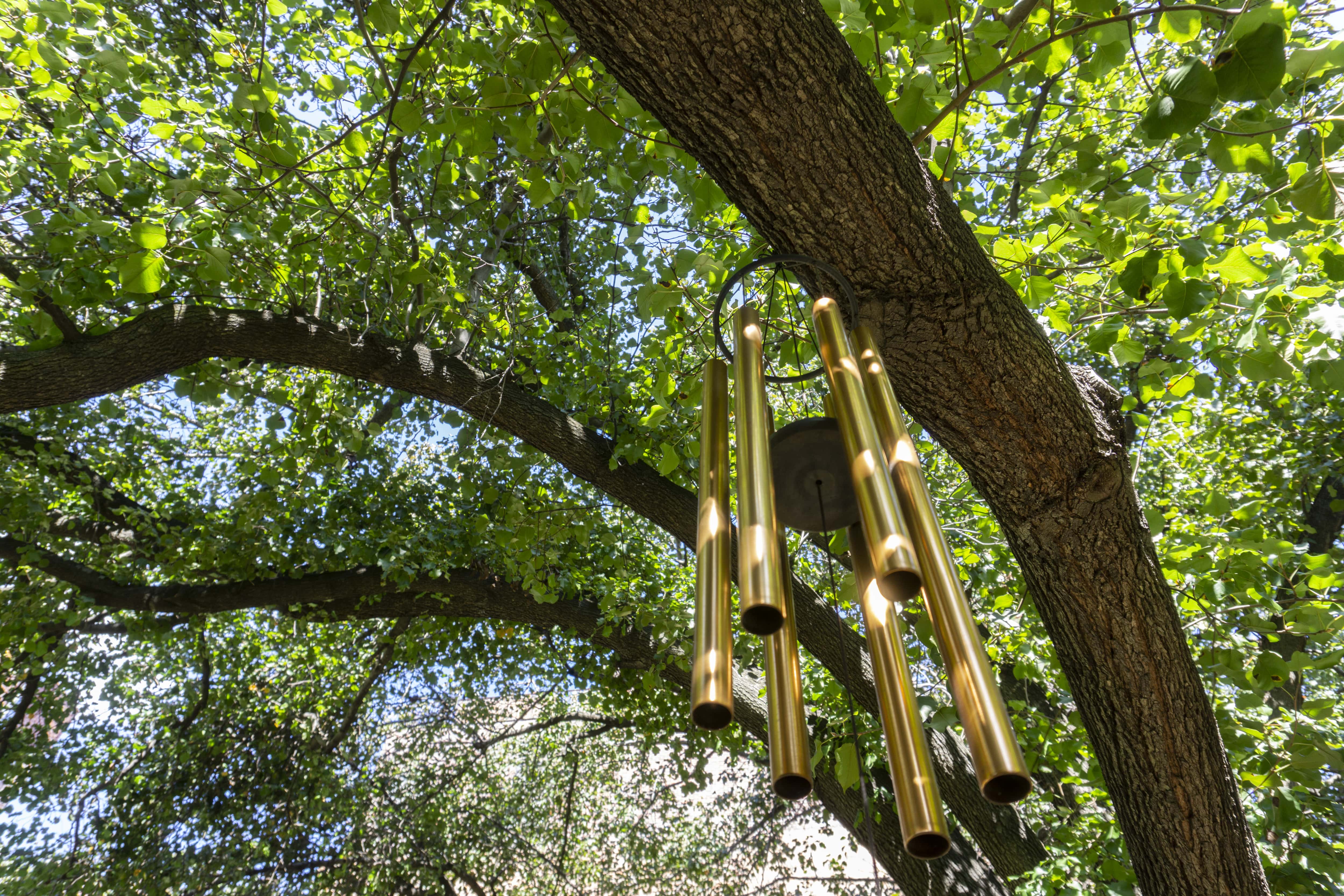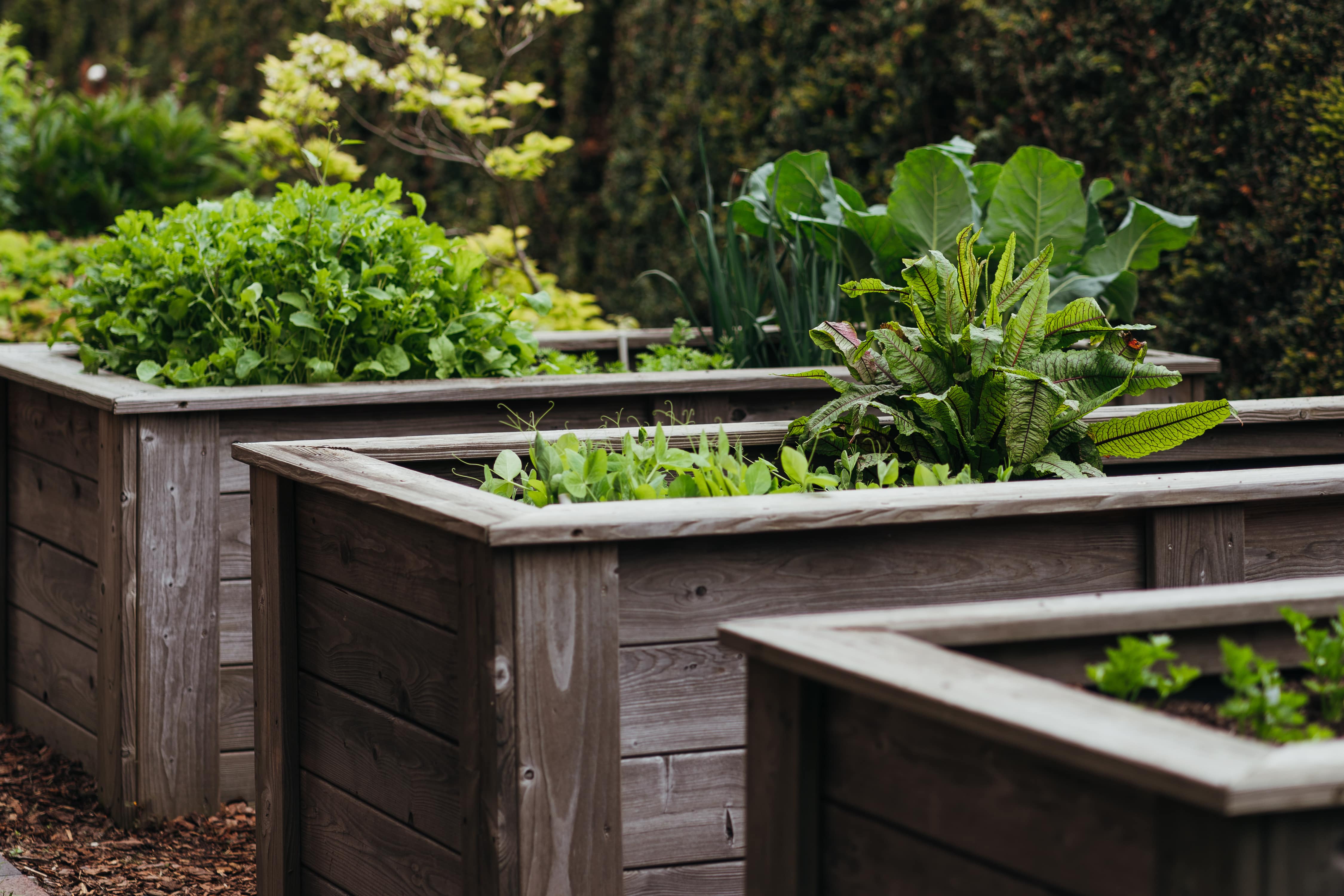
How much does a gnat exterminator cost? The answer depends on the method of treatment and the level of infestation. Find out what plays into your budget.
Steer deer away for good


Deer grazing in the yard may invoke images of serenity and calm, but if they’re helping themselves to your garden, then it can quickly become a nuisance. While deer are mostly harmless and will likely never attack your family and pets, your prized flowers and other flora are another story.
Let’s look at how to keep deer out of the garden in the most gentle way possible, so you can preserve your hard work from your forest friends.
Deer love eating berries, flowers, fruits, and leafy greens—basically, all those plants you’ve spent hours tending to. Some of the things that are most attractive to deer include:
High protein plants: These plants, including soybeans, kale, corn, and alfalfa, are an attractive energy source for deer.
Apple trees: Fallen apples are a tasty treat for humans and ruminants alike.
Oak trees: While they often prefer the tasty fruits and flowers found in gardens, acorns from white oaks will make up a large portion of a deer’s diet when access to other food sources is limited.
Water sources: Kiddie pools, bird baths, ponds, or any other places with easy-to-access water make great resting spots for roaming deer and other critters.
Don’t let a herd of deer enjoy the food in your garden before you get a chance to. Try one or a combination of these humane deer deterrent options.

Your garden is likely the reason why deer are attracted to your yard, but carefully plotted plants can also be the solution to keeping deer away. The plants that repel deer are usually heavily scented or strangely textured, like thyme or lamb’s ear. Strategically place a combination of deer-resistant plants around the perimeter of your garden to deter those does naturally. Some of these scented plants may be enough to keep the deer away naturally:
| Heavily-Scented Plants | Textured Plants |
|---|---|
| Herbs like thyme, oregano, sage, mint, and dill | Lamb’s ear |
| Lavender and daffodils | Roses |
| Garlic and chives | Lady’s mantle |

Deer deterrents are mixtures of oils and scents sprayed or sprinkled on plants throughout the garden. You can purchase deterrents from your local outdoor store, or you can make your own with this recipe.
Ingredients:
Cup of white vinegar
10 drops of peppermint essential oil
10 drops of rosemary essential oil
5 drops of fennel essential oil
Directions
Fill half an empty spray bottle with white vinegar.
Add peppermint, rosemary, and fennel essential oils.
Shake the bottle well, then spray the solution all over the leaves and stems of your garden plants.
Keep in mind that it’s best to avoid spraying deer repellents on plant parts you plan to eat.
If you purchase a powder deterrent from the store, simply sprinkle the solution on the ground throughout the garden.
Another method involves adding a rocky barrier around your garden area, creating an uneven surface. Many animals, especially hooved ones, dislike walking over unstable rocky areas. Keep deer out of your garden by surrounding it with a 6-foot (or wider) gravel border or loose-stone border around the perimeter.
For an effective and inexpensive solution, you can hang bars of heavily-scented soaps around your garden. The scent is pungent to deer and other critters and works surprisingly well at keeping them away. Irish Spring is a favorite for this tactic.
The best part is that this method is extremely easy and inexpensive. Simply buy a few bars of soap and put them in mesh bags, or cut out the feet in a pair of stockings to DIY a pouch. Tie the top and hang the bars throughout the garden on fence posts, stakes, or tree limbs. Concentrate on the areas containing plants most appetizing to deer.

Deer are curious animals, but they scare easily. Installing scare tactics in your yard is an effective way to keep them out for good. Options include:
Motion sprinklers: These will turn on whenever they sense movement. The sudden spray of water is enough to spook deer and send them running.
Wind chimes: The loud and unpredictable sound of wind chimes will help to keep deer out of your garden. Instead of hanging them from nearby trees and relying on the wind to pick up the moment deer approach the area, place multiple chimes throughout the garden where deer will likely brush up against them. Because of its unpredictability, this tactic works best when layered with other deterrents.
Ultrasonic repeller: These small devices emit soundwaves undetectable to humans but audible to deer and other animals, making them weary of the area. Despite being an effective option, it’s possible that your domestic pets can also pick up the sound. Consult your veterinarian before purchasing and installing ultrasonic repellers.
Motion lights: Bright lights secured to a house exterior that turn on at the first movement detection are useful for keeping deer away from your garden at night. When installing, choose a spot on your house closest to your garden, and point the lights in its direction.

One of the best ways to keep deer out of your garden is to keep it out of reach with a raised garden bed. To make this effective, plan to elevate your plants by at least 3 to 4 feet. Use your DIY skills to build a raised garden bed from scratch, or save time and energy with a premade option.
Messy gardens are an open invitation to deer. Deer are attracted to gardens with leaves, petals, and crops that have fallen to the ground because they are easier for them to eat. Regularly tending your garden can help dissuade deer from making it a pit stop. Additionally, it helps to harvest your crops as soon as they’re ripe.

One of the most effective deer-prevention tactics is to build a deer fence around the perimeter. A barrier fence doesn’t have to be a big lift—a simple post and netting fence will help (though it’s not as effective as other options).
Deer won’t usually jump a fence if they can’t see what’s on the other side. The most effective type of blockade is a stockade fence or any type of solid privacy fence that blocks vision on both sides.
No matter the type of fence you choose, it’s important to take the height of the fence into consideration, as some deer can easily cover fences 6–8 feet high.
The most obvious sign of deer damage includes leaves, stems, and flowers clearly chewed. However, deer make this even more obvious by chomping the entire leaf or stem (versus a small rabbit nibble, for instance).
Another clear sign of deer damage is trampled plants—they weigh quite a bit and their hooves can become proper plant stompers. You may also notice deer droppings, which are about the size of marbles. Plus, deer like to rub the bark on nearby trees, which you may notice when you walk around your property.
Fortunately, the methods mentioned above not only work if the deer have started using your garden as an all-you-can-eat buffet, but they’re also smart tactics for preventing damage from deer in the first place.
It is always recommended to practice safe, humane, and lawful deterrent methods no matter what kind of animal you’re trying to get rid of. Always avoid any practices that could hurt or endanger the animal, yourself, or surrounding neighbors.
Though relatively humane deer traps exist, you’ll have to check the traps daily. Holding a deer for hours or days makes the trapping method inhumane, no matter how gentle the trap. Additionally, this method isn’t recommended because you can do nothing with a caught deer other than release it, which won’t keep other deer from wandering through your property. Instead, use a combination of the abovementioned tactics for humane, long-lasting, and widespread deer prevention.
Shooting deer on your property (including using gunshots as a scare tactic) is not a recommended method of deer deterrent, especially outside of hunting season or without required permits. This includes shotguns, BB guns, and pellet guns. Depending on where you live, there may also be laws and regulations making it illegal for you to hunt in a residential area.
It’s never advised to feed deer or any other animal poison. This extremely inhumane option won’t solve your problems in the long term.
Most of the methods used for keeping deer out of a garden are DIY projects you can easily complete over a weekend. However, if you’ve tried several of these tactics and nothing works, or you don’t have the time to find a doable solution, consider calling in Wildlife Services for additional help. Local wildlife services use humane methods for getting deer out of your garden and may have options only available to professionals. The average cost for wildlife removal is about $385.
Deer are among the other animals that make up 17.95% of wildlife control visits. Raccoons, squirrels, skunks, and possums are much more common, accounting for over 50% of pest control treatments combined. Other small animals, like moles, voles, and groundhogs, are also commonly treated by pros.
I am not a fan of there policy or service. There are several things I do not like about there service. They come out when they want to. This is a problem since we have animals that walk the yard and potentially they are exposed to pesticides that could and have made them sick. We have not...
I love this company!! They go above and beyond my expectations. Their products really work and they are easy to contact and work with. Pest control is something I don't have to think about anymore. I love knowing they will retreat for free. Thank you!!
Jake and Payson were knowledgeable and extremely thorough with this pest control treatment. They explained everything that was done, left contact information if needed, and were courteous (even wore booties in the house). In all our experience with other pest control companies, Jake and...
From average costs to expert advice, get all the answers you need to get your job done.

How much does a gnat exterminator cost? The answer depends on the method of treatment and the level of infestation. Find out what plays into your budget.

Snake removal cost comes down to the type and number of snakes you’re dealing with and where they’re located inside your home. This guide breaks it down.

Sometimes birds nest in unwelcome places. Find out how much bird nest removal will cost based on factors like location, bird species, and preventative measures.

Mice spread diseases, chew up your electrical wires, and eat anything and everything in your home. Get rid of mice fast, but humanely, with these easy tips.

Whether it’s a swarm of mosquitos interrupting your summer evening on the patio or the discovery of fleas in the guest room, you may have to break out bug spray. Read on for tips to reduce your exposure and signs of bug spray side effects.

Your pets may pick up fleas in the yard and spread them through the house. Learn how to get rid of fleas in your yard to treat the problem at its source.